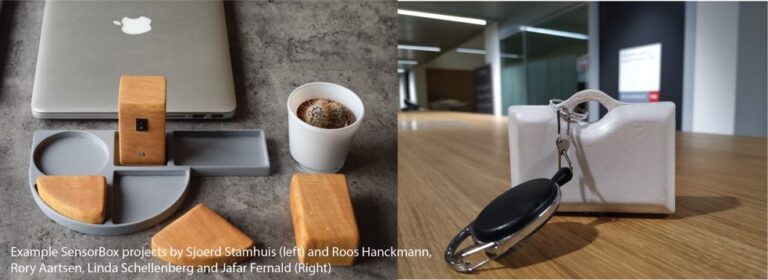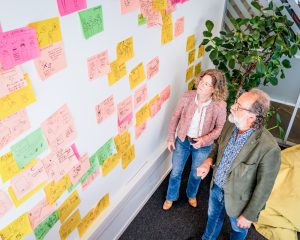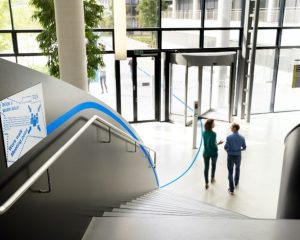POWEr FITTing – Office Vitality in a Box
Description of assignment: Office Vitality in a Box (or outside the box!)
In recent years, the use of sensors in office buildings has increased, often with the aim of optimising the building performance. Yet it is unclear how these sensors benefit the workers themselves in a meaningful way, for instance by supporting them in adopting healthier working routines. Sensors in office environments allow to measure contextual factors (e.g., temperature, humidity, light) but could also be used to better understand working routines at the social and individual levels. Communicating this data to the workers themselves might also empower them and support behaviour change.
Sensing the work environment, along with people’s actions and affective states is essential to design personalized behavior change interventions. What can you equip with sensors to better understand the context of office work? How will you involve people in a continuous and qualitative way to gain a nuanced grasp of their (un)healthy behaviors?

Your mission is to design a vitality sensor box (or ecosystem of) to deliver meaningful information to office workers about their working environment, their own routines and perhaps even the ones of their team members. Relevant questions which can be addressed:
- Which sensors should be used to learn about employee’s behavior?
- What can we learn from the collected data? Are there specific patterns we can identify?
- How can we use / communicate this data in a meaningful fashion to the employees themselves?
- How does the vitality sensor box contribute to specific behavior change intervention?
Depending on your study background, this mission can either involve:
- The design of the sensor box per se (Electrical Engineering, Industrial Design),
- The development of the ecosystems of sensor boxes and underlying behaviors (Computer Science),
- The analysis and use of data based on already designed sensor boxes (Data Science),
- Conducting various user studies amongst employees to understand what is meaningful to know about themselves and their working environment and how to present this information. You might also imagine and deploy behavior change interventions using technology (Psychology and Technology, Industrial Design)
Types of student project possible
Fontys: Internship, Graduation projects
TU/e: Bachelor project, Master internship, Master thesis
Types of study
- Industrial Design
- Computer Science
- Data Science
- Elektrical Engineering
- Psychology and Technology
- Built Environment
Starting date/duration of student projects
Flexible depending on the requirements of students’ institutions.
Contact
Marieke van Beurden, m.v.beurden@tue.nl

